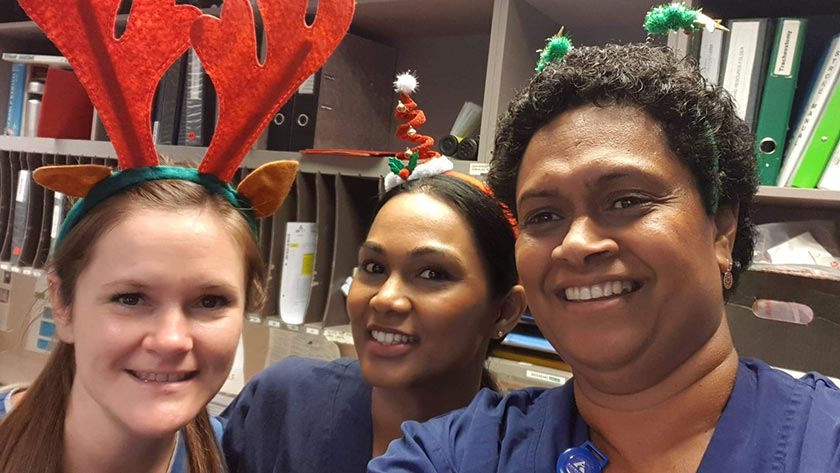Auckland nurse Kelera Batiwale initially came to New Zealand for a holiday with some nursing colleagues, back in 2008.
But, with a recent military coup in 2006, the future was feeling uncertain for many Fijians. So, while here, Batiwale applied for the (now defunct) Pacific return to nursing scheme at Manukau Institute of Technology (MIT), in partnership with Counties Manukau District Health Board (CMDHB).
Having trained at the Fiji School of Nursing, Batiwale had worked in Fiji as a nurse for 18 years, doing everything from obstetrics to emergency to public health nursing. But she needed to pass the occupational English test and competency assessment programme (CAP) before she could practise as a nurse in New Zealand.
She won a place on the scheme, which supported her through her English tuition. While studying during 2009, she also worked as a health-care assistant (HCA), pulling hospital night shifts between tutorials, then as a community support worker at the Pacific Integrated Family Centre on the North Shore.
Having passed her English test, in 2010, she embarked on her CAP at Waitemata District Health Board while continuing her community support work.
By mid-2011 she was struggling with being apart from her four children and husband for nearly two years, after planned trips at Christmas and Easter clashed with her studies. She was considering giving up – but her children encouraged her to stay and complete her qualifications.
“I was so homesick but I wanted to go back home,” Batiwale said. “But my oldest son said ‘you should do this, for me’. That really hit me.”
So, she persevered, completing her CAP by mid-2011 – just before her visa ran out. She successfully applied for her nursing registration that year – three years after her arrival. With a new work visa, she was finally able to go home for Christmas and reunite with her family.
Back in New Zealand, she resumed work at the Pacific Integrated Family Centre, this time as a registered nurse, before moving to Pacific community clinic, the Fono, in 2012.
In 2012, her family was able to come and join her, eager for the opportunities afforded in New Zealand, away from the troubles of a military-run Pacific nation. “There are so many problems in Fiji and better opportunities here,” she said. One son is now practising law, another is studying law and her daughter studying tourism. Her youngest child is still at high school.
Batiwale has since moved into secondary nursing, at North Shore Hospital then Auckland City Hospital. “I wanted to challenge myself and do hospital care, after working in community care for so long.”
Last year, she agreed to be seconded into the hospital’s critical care unit to prepare for the potentially overwhelming impact of COVID-19. While the global pandemic did not devastate New Zealand’s health system as it was beginning to in other countries, it was a very different environment. “I thought ‘oh my God, what have I done!’.”
Batiwale became involved with NZNO early on and is now president of the Auckland branch of the Pacific Nurses’ Section, which she says is great for networking.
She always tries to encourage other Pacific nurses following the path to working in New Zealand, acknowledging how challenging it can be to support themselves through the English and competency exams. Even with the support of the Pacific return to nursing scheme, the path to nursing in New Zealand had been challenging, Batiwale said.
Yet it was so important to Pacific communities to be cared for by those from the region. “The way we connect with our people – we try to make the utmost difference, so they will never forget the care they received,” Batiwale says. “I always give them the bula smile!”
She also makes time to hear about their lives and give “holistic” care – rather than just the medical advice or whatever they presented for – “the whole package”.
With eight siblings still in Fiji as well as her husband’s family, they keep in touch on video calls. Where they are living is reasonably safe from COVID-19 outbreaks.





